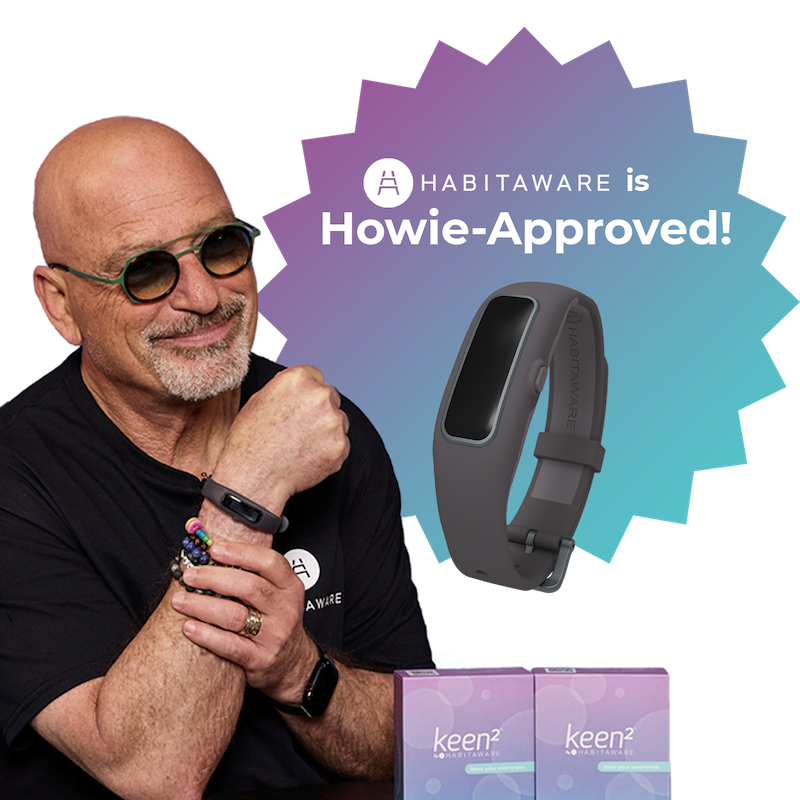Something I’ve recently been working on is having the ability to say “no.” I give a lot of energy to my loved ones, whether that’s taking care of someone’s pet, setting aside time every week to hang out with friends, or doing lots of little freelance projects. It’s not that I don’t love helping, and I want my loved ones to have any break that they can get, but I had stopped giving myself breaks.
I was overworking myself by maintaining rigorous self-discipline, working late, working early, and using my rare free time socializing with friends. It wasn’t sustainable, and I was exhausted! Eventually, the mere thought of adding something else to my calendar was enough to send me into panic mode and I realized that, even though I was making time for the people I love, I wasn’t showing MYSELF enough compassion.
So, I try to set aside my mornings for myself. I drink a full cup of tea before starting work and give myself 30 minutes to do whatever I feel like; watch a video, read a book, organize my space, etc. But this new pattern created a new struggle: if my morning time is for me, then I deserve to SLEEP IN! And when I sleep in, I don’t make progress with my ME TIME. The video remains unwatched, my book unread, my space untidy. I now realize I need to implement a little bit more self-discipline into my self compassion schedule.
Self Compassion vs Self Discipline
WHO IS WINNING THE BATTLE?
By having a “vs.” in the title, it implies that one should win over the other - but that’s not the case in this situation! Like many aspects of life, it’s not healthy to sacrifice one or the other completely, but instead finding a healthy balance between the two. The winner shouldn’t be either of these qualities. The winner should be YOU, a stronger, healthier version of yourself.
Something we talk about in the Keen family is “self-soothing vs. self-care”. If you are asking yourself “why do I pull my hair?”, “why do I pick my skin?”, or “why do I bite my nails?”, the answer is usually that these behaviors relieve stress, or other states of mental discomfort. It is our body’s natural response to being over-stimulated, or under-stimulated. They give our nervous system a ‘constant’ to ground ourselves, like listening to white noise while you sleep so that any floor creaks, or bumps in the night are drowned out. Because they serve a purpose to ease our mind and body, it makes it very hard to stop hair pulling (trichotillomania), skin picking (dermatillomania), and nail biting.
Let me say it again: our BFRBs are self-soothing, but they don’t serve us well!
However, that doesn’t mean to cut out self-soothing completely! Self-soothing is a completely natural and necessary reaction to being in an uncomfortable situation, and helps us process information as it happens. Trichotillomania (hair pulling), dermatillomania (skin picking), and onychophagia (nail biting) are hard to treat because it’s not just about "getting rid of it." There’s multiple steps. The battle of conquering BFRBs is a combination of learning new, healthy self-soothing techniques, and creating a self-care routine that helps us prevent falling back into our older, unwanted self-soothing techniques.
So where do you fall on the scale?
In terms of our BFRBs, there are times where we can lack BOTH self compassion and self discipline. When we notice that we pull a couple hairs, or pick a spot on our skin, or start biting a nail, we might want to throw in the towel right there. “Oh, I already started, so I might as well undo all of the progress I’ve been working toward.” And then we proceed to pull 100 more hairs, pick 10 more spots, bite 9 more nails - but that’s not showing ourselves compassion OR discipline.

One analogy we use at HabitAware is the “staircase metaphor.” If you tripped on the stairs, twisted your ankle, and stumbled down a couple, you wouldn’t say “oh well, I’ve already fallen this far down,” and throw yourself down the rest of the stairs. No! You’d grab the railing, steady yourself, and carefully walk down the rest. It’s the same with hair pulling, skin picking, and nail biting. Don’t give up and keep pulling, do what you have to do to steady yourself.
Remember: If you’ve gone a year, a month, even a week without doing your behavior, you’ve already become wiser- that time is never wasted!
So, how can we be compassionate and disciplined to ourselves in these moments? The compassionate thing would be to say to yourself “oh, this is a sign, I need something,” and to put your hands down and get yourself a drink, or a fidget, or take a deep breath. The disciplined thing to do would be the exact same! Don’t indulge the negative self-speak that thinks it’s all for not. You’re growing, and learning, and changing, and a slip up is actually an opportunity to grow even more.
CAN YOU HAVE TOO MUCH SELF COMPASSION?
The first example of how self-compassion can get the best of us is when it prevents us from doing the work of recovery. There are plenty of calming, self soothing, self care strategies that are WAY more appealing than rigorous routines like journaling or exercise.
Let’s look at a BFRB example. Kerry has trichotillomania. She’s been using her Keen2 and it has definitely helped make her aware of when her hand is in her hair! She has started to keep fidgets at her desk, but work isn’t the only time when Kerry pulls, she also pulls in the car, and in bed. She hasn’t quite figured out the best replacement strategies for herself in those spaces. When Kerry gets home, she sets time aside to take extra care of her mental health. She knows she could use this time to journal and record the things she noticed about her BFRB, and come up with new strategies to use in the car and before bed, but she really prefers to take a nice hot bath and put on clean clothes. By the time she’s out of the bath, she wants dinner, and doesn’t use that time to take preventative steps for her hair pulling, so the cycle continues.
We have to ask ourselves: “am I doing the work that I need to do to set myself up for success?” We need to have the self discipline, and courage, to do the hard work of healing. We use self discipline in the time we spend asking ourselves questions about our BFRBs and making connections on what might trigger them. We also use it in prepping our day to be kind to ourselves, making sure we’re drinking enough water, and eating food that makes us feel energized. Also making sure we are keeping replacement strategies nearby whether that be a “pause pack,” a glass of water, or whatever replacement works for you.
Self compassion is a good thing. It’s impossible to have too much self compassion, because self compassion is a skill, something that you can get better at with time, and discover more about yourself through. For example, let’s think about other skills. You can’t be too good at chess, but you can spend too much time on chess. You can know 100 ways to show yourself compassion, but if kindness is the only tool in your arsenal, then your relationship with it isn’t healthy. You become over dependent on that one tool.
WHAT DOES TOO LITTLE SELF COMPASSION LOOK LIKE?
You can probably take a guess. The example that I gave in the introduction was that I was overworking myself, and didn’t give myself time to unwind. This led to my anxiety getting out of control, and it didn’t benefit my BFRB at all! If you’re overworking yourself, find time for yourself - whether that’s a walk, a stretch, a nice bubble bath, or anything else that you enjoy, that fuels you up or helps you relax. Hopefully by adding these moments into your day, your mind feels clearer, and when your mind is clearer, it gives our hands the chance to settle down too.
Not showing ourselves enough compassion affects our mindset and can perpetuate negative self-speak. That causes us to focus on the bad and overlook the good in ourselves. If we’re constantly disciplining ourselves internally, with “I’m not good enough,” “I need to be better,” “I am doing this wrong,” then we lose touch with the part of ourselves that is nurturing and patient. Instead, we want to focus our energy on encouraging internal dialogue. Let’s Congratulate ourselves for progress made, and support ourselves through rough patches. Our brains want to be right. When we put energy into having positive thoughts, it becomes easier to notice the good, until it becomes almost effortless, and we can watch the good in ourselves grow exponentially.
HOW DO I FIND MY BALANCE?
Well, here’s where some personal reflection might come in handy! Objectively reflecting on your routines and your coping mechanisms is definitely a good way to get an idea on where you are using one skill more than the other. Notice that keyword: “objectively.” Sometimes, the self-compassion voice will want to brush aside any concerns that the self-discipline voice will have, and vice versa. Being conscious of when that is happening can be hard to do, but here’s some questions to start you off:
-
What places in my life am I investing the most energy in?
-
Do I prefer that my routine is consistent, or do I enjoy spontaneity?
-
Is my current workload sustainable long term? Am I getting enough done?
-
Do I feel like I have healthy relationships with those around me? Am I giving as much energy as I am getting back? What is realistic to expect?
-
Do I feel satisfied when I complete a goal, like finishing a book, or a project around the house?
- Am I investing enough time in my physical health? Am I exhausted? Eating well? Drinking enough water? Does anything impede me from taking care of my physical health?
Keep in mind that there is no right or wrong answer to these questions. These are simply for you to reflect on and, if you find it resonates, relate to how you use self discipline and self compassion in your life. Hair pulling, skin picking, and nail biting are hard to stop. I can’t deny that. I’ve seen people describe it as an addiction. But I think it’s better not to aim for stopping; and instead aim for management. When we learn to manage one area of our mental health, approaching other areas of our mindscape that we struggle with becomes easier. Hopefully these tips and questions can help you find new ways to grow and heal, not just with your BFRB, because as individuals, everything we struggle with is affected by how we handle the world around us.
Thanks for reading!
If you’re having any trouble with your Keen or Keen2, you can reach out to support@habitaware.com
Mari & the HabitAware Team
![]()
Special thanks to Maddi Bazzocco for the header image!


